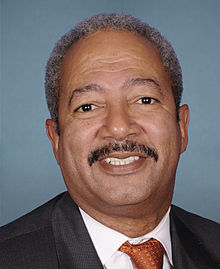The election to be mayor of the fifth largest city in America is (effectively) seven months away. In the past, candidates would have by now already prostrated themselves before donors and, with much populist fanfare, made public announcements meant to convey that here is not just another political insider. After all, the last time the mayor’s office was up for grabs, then-councilman Michael Nutter dramatically quit his legislative post and announced his intentions—nearly a year before the election.

Yet this time around, we have two announced candidates—Terry Gillen and Ken Trujillo—and a slew of others possibilities, all deep in thought. Weighing things. What gives? Why so many Hamlets on Broad Street?
Partly, everyone is waiting to see what Council President Darrell Clarke does. If he runs, it could clear a good part of the field; some candidates, like controller Alan Butkovitz, have already said that if Clarke gets in, they won’t. But if Clarke runs, he would have to give up his Council seat and all the power he’s accrued since taking the reins of Council in 2012—unlikely.
But waiting on Darrell doesn’t fully explain our current state of freeze-frame. So what does? “Chaka has paralyzed the race,” one potential mayoral aspirant told me.
Chaka, of course, is Congressman Fattah, who looks to be under federal investigation—for allegedly concocting an elaborate scheme to bypass campaign finance laws when he ran for mayor as the presumptive frontrunner in 2007.
So how do Fattah’s troubles affect 2015? Should he resign his congressional seat or be forced out after a conviction before next May, insiders speculate that Michael Nutter might be the one to take his place. After all, Nutter will need a job; he lives in Fattah’s district; and he’s always been a legislator by nature. That would require Nutter to step down as mayor before the end of his term. And who would be appointed to fill out the balance of Nutter’s four years? None other than Clarke.
The scenario seems like a tidy win/win for a bunch of politicos. Fattah fades away from public view, getting a respite from all those nosy reporters and their questions. Nutter, never much of a chief executive, gets a high-profile job doing work he’s more suited for. And Clarke gets to be mayor without having to risk running for it. He’d fill out Nutter’s term and then run as an incumbent, all but guaranteeing his reelection. (Remember, we once had an incumbent get reelected who had dropped a bomb on his own city.)
Pretty neat trick, but there would be one loser: local democracy. At a time when the city faces major hurdles—crumbling schools, the highest tax rate in the nation and crushing poverty—is it possible we could really have a mayoral race that is devoid of real debate, more of a coronation than an election?
Odds are it won’t happen, but not because the jockeying politicians will come to their senses and realize that the city desperately needs an open and frank exchange of ideas. No, it’s more likely that the enmity between Clarke and Nutter runs so deep that Nutter won’t relinquish his seat if it means Clarke gets what he wants—without having to work for it, like Nutter did nearly eight years ago. It may not be high-minded thinking, but at least it might just get us what we need: multiple candidates arguing ideas for how to move the city forward.

